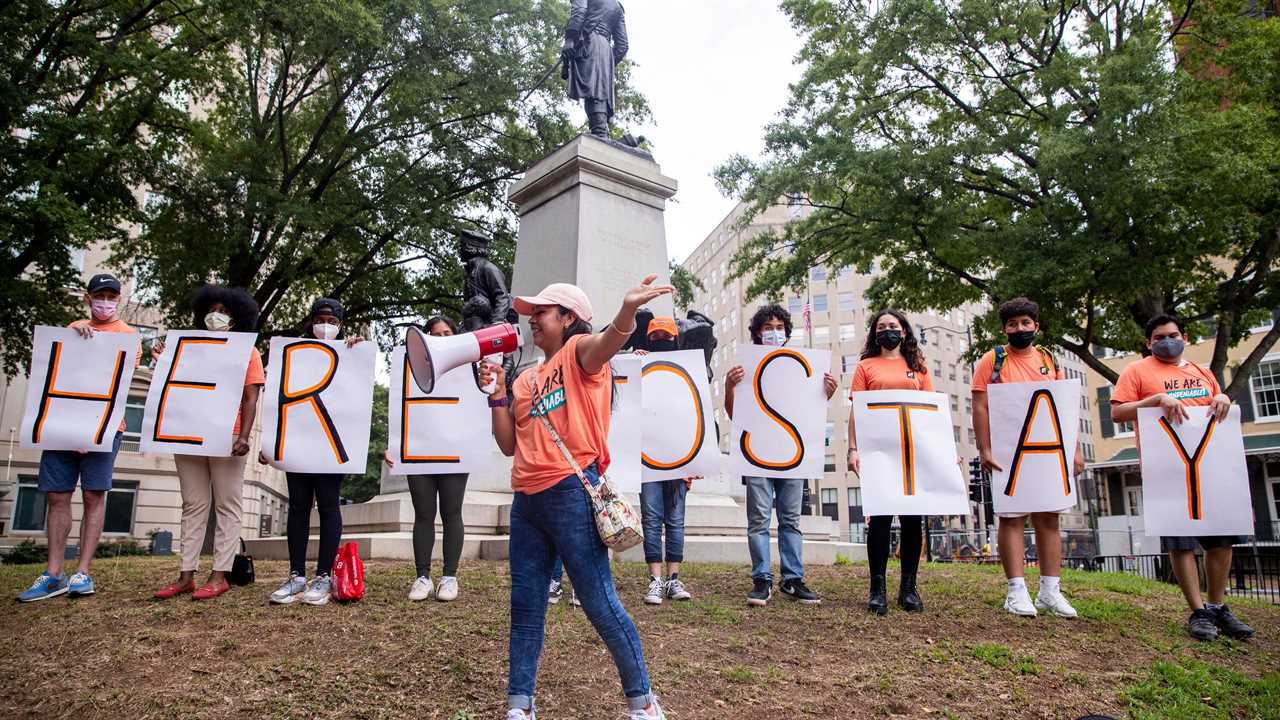
WASHINGTON — The Senate parliamentarian dealt a major setback Sunday to Democrats’ plan to use their $3.5 trillion social policy bill to create a path to citizenship for an estimated 8 million undocumented immigrants.
Elizabeth MacDonough, the Senate parliamentarian, who serves as the chamber’s arbiter of its own rules, wrote that the “policy changes of this proposal far outweigh the budgetary impact scored to it and it is not appropriate for inclusion in reconciliation,” according to a copy of her decision obtained by The New York Times.
Democrats had been seeking to grant legal status to undocumented people brought to the United States as children, known as Dreamers; immigrants who were granted Temporary Protected Status for humanitarian reasons; close to one million farmworkers; and millions more whom are deemed “essential workers.”
Under the proposal, undocumented immigrants would have been eligible to become U.S. citizens if they passed background and health checks and paid a $1,500 fee, among other requirements. The plan would have also recaptured at least 226,000 visas that went unused in previous years, because of “Covid-19 or bureaucratic delay,” allowing more visas to be issued.
Democrats had been hoping to include the immigration overhaul in their sweeping legislation to expand the social safety net, which they plan to muscle through under a fast-track process known as reconciliation that shields it from a Republican filibuster. That would test the bounds of the Senate’s rules, which require that any measure included in a reconciliation bill have a direct impact on federal spending and revenues.
Ms. MacDonough’s decisions are merely advisory, but several Democratic senators have indicated they would be reluctant to overrule her. She did not immediately respond to a request for comment.
The budgetary cost of the changes in immigration law — which affect health care benefits, Medicaid spending and tax credits — exceeds $139 billion over 10 years, according to preliminary figures from the Congressional Budget Office. Democrats estimate the legalization push would add $1.5 trillion to the U.S. economy over the next decade, creating more than 400,000 jobs.
Republicans argue the immigration overhaul is only tangentially related to the budget.
“The reasons that people risk their lives to come to this country — to escape religious and political persecution, famine, war, unspeakable violence and lack of opportunity in their home countries — cannot be measured in federal dollars,” the parliamentarian wrote.
She argued that “changing the law to clear the way” to legal status for millions of undocumented immigrants is a “tremendous and enduring policy change that dwarfs its budgetary impact.”
Immigration advocates have readied some backup plans in case the parliamentarian did not rule in their favor, including a plan to update the immigration registry, a process for immigrants to become legal permanent residents on the basis of their longstanding presence in the country.
Kerri Talbot, the deputy director of the Immigration Hub, said immigration advocates would not give up trying to change the law.
“This is not the end of the process,” she said in a statement. “As we’ve said before, this is not a one-off. We have always known that this would be a back and forth where we would have to present several options. What we know is true: A path to permanent residency and citizenship has a significant budgetary impact, great bipartisan support, and — above all — it is critical to America’s recovery.”
Did you miss our previous article...
https://trendinginthenews.com/usa-politics/pandemicrelated-illness-forces-cancellation-of-sept-11-hearing-at-guantnamo






